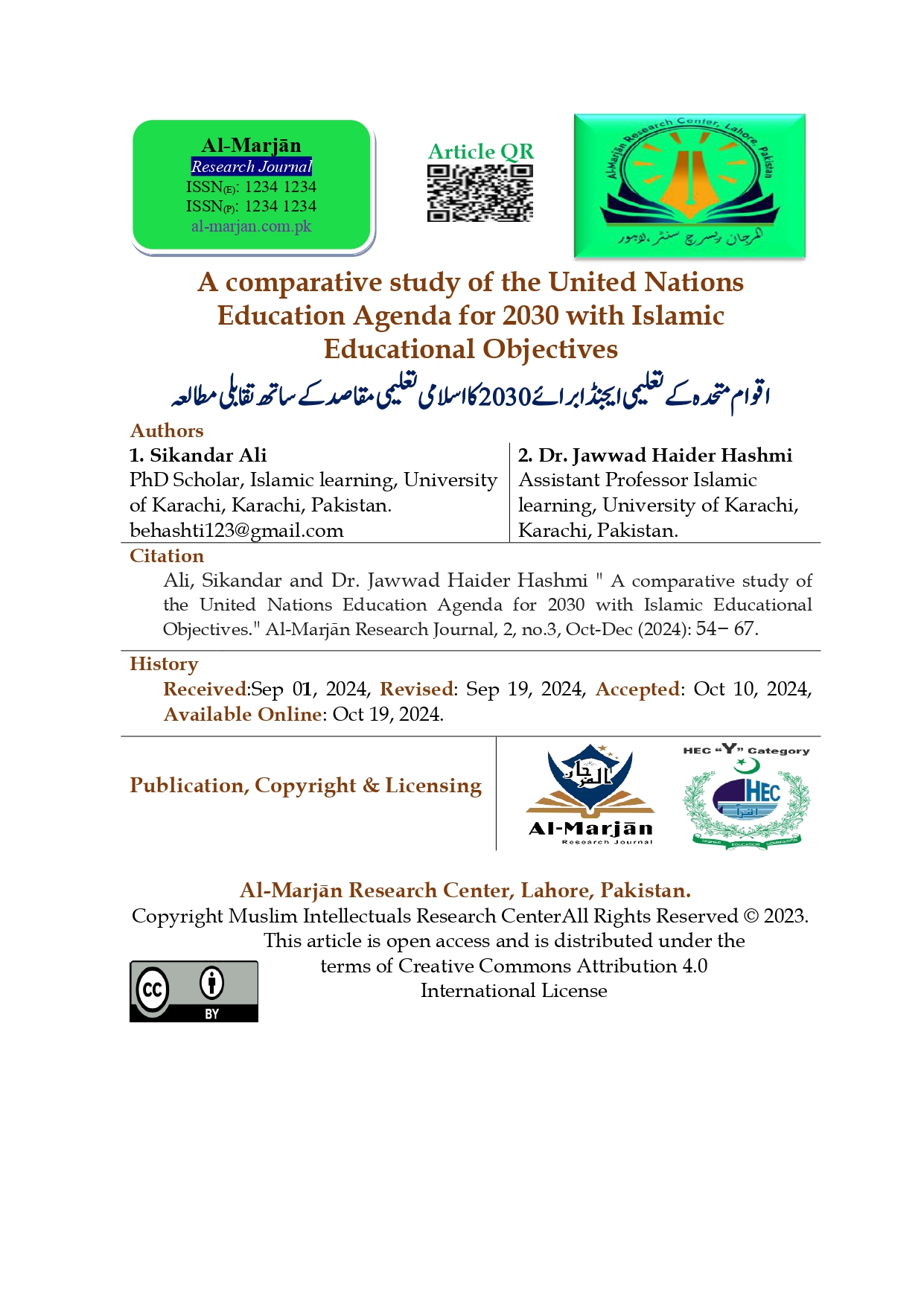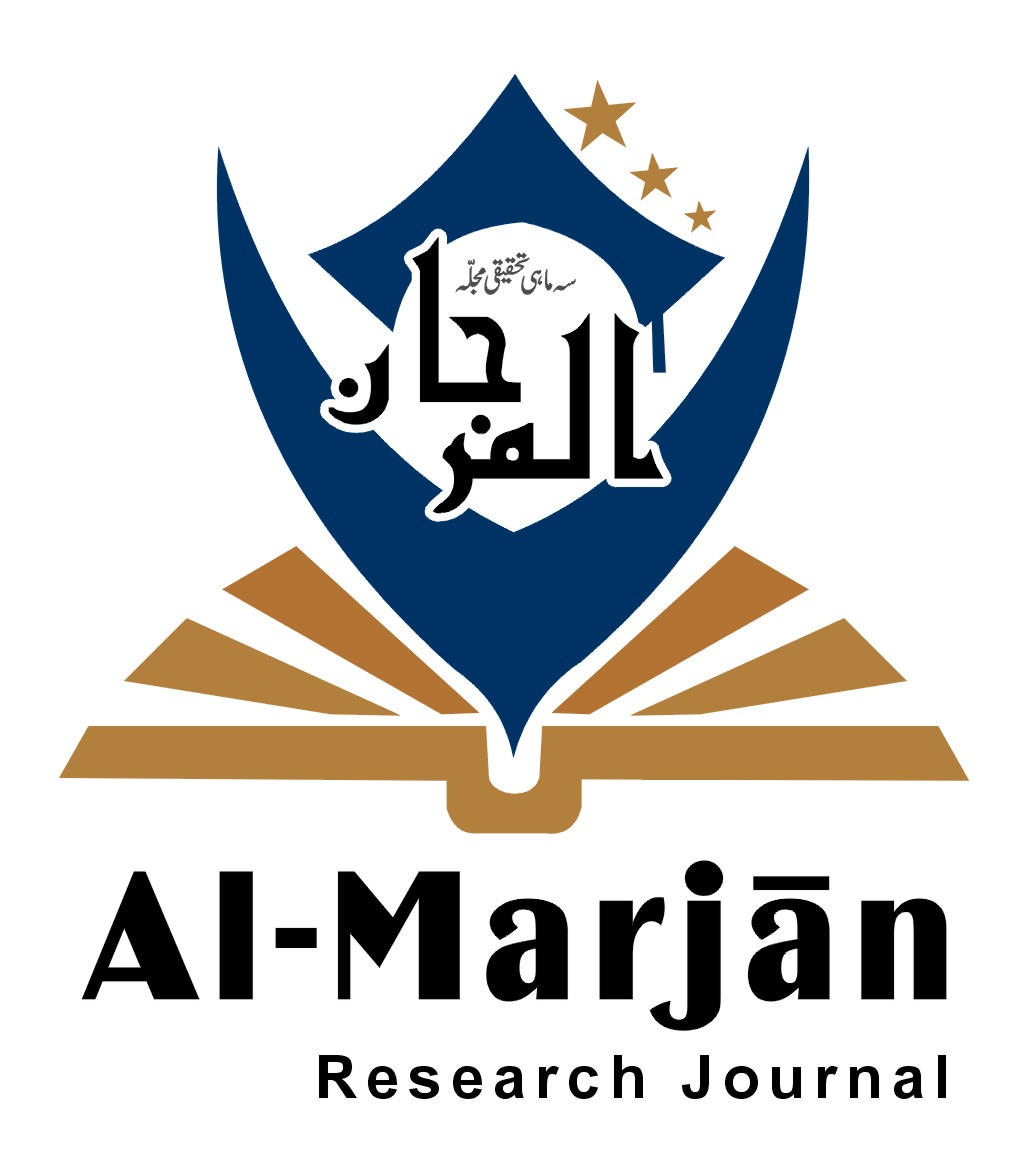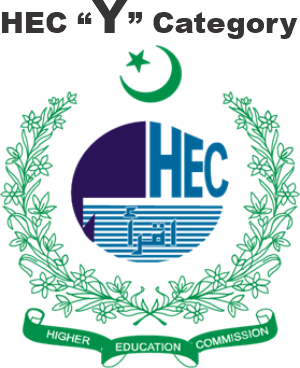A comparative study of the United Nations Education Agenda for 2030 with Islamic Educational Objectives
اقوام متحدہ کےتعلیمی ایجنڈابرائے2030کااسلامی تعلیمی مقاصدکے ساتھ تقابلی مطالعہ
Keywords:
United Nations, Islam, Education 2030, UNESCO, Education, Goals and Objectives, HumanismAbstract
Education is the most important thing for the progress of any country or society. The important elements of education are; principles, objectives, and methods. However, educational objectives are most importance. Because, education policies are based and centered on educational objectives. The world's two largest and most effective systems of education are; Islamic and Western theories of Education. The objectives of western education theory have been introduced by UNESCO in 2015 in the form of "United Nations Education “2030” globally as a comprehensive and guiding system for the next fifteen years. Research about these two education systems objectives and goals is important and it is a social need too. Because on the one hand, our religion, culture and history demand a commitment to Islam. And on the other hand, we also need to live with the modern world. Therefore, it is necessary to have a clear vision of the basic goals of education. So that in this context the evaluation of the remaining objectives is easier. Because, the little objectives are formed by these higher and fundamental goals. The Western system of education is based on materialism and the concept of this apparent world. Therefore, only the human aspect of "humanism" has been taken in their educational agenda. According to this theory, the axis of the universe is man and the pursuit of man's comfort and material goals on earth is the main goal. Whereas in the School of Islam, man is a combination of body and soul. In the eyes of Islam, man is the Caliph in this world, and eternal life is for him after dead. If the education system is formed on man's material, spiritual and monotheistic concept of the universe, then that education system will guarantee success in both the world and the Hereafter. The important question here is; which of the higher objectives of education are presented by the United Nations Education 2030 and Islam, and what is the fundamental difference between them? In this article, an effort has been done to answer the question related to these educational objectives in the context of Islamic teachings.






































